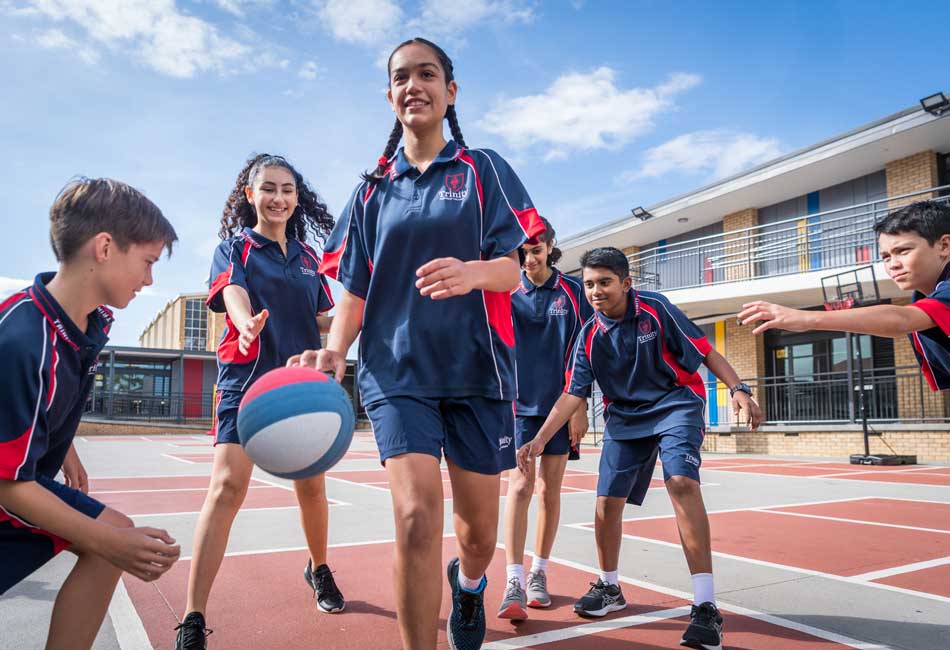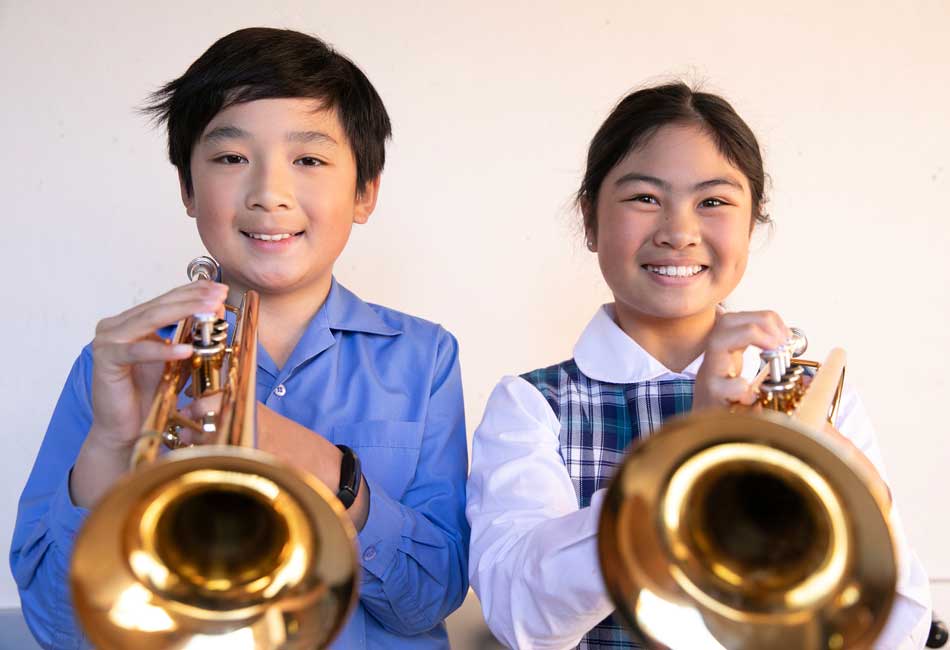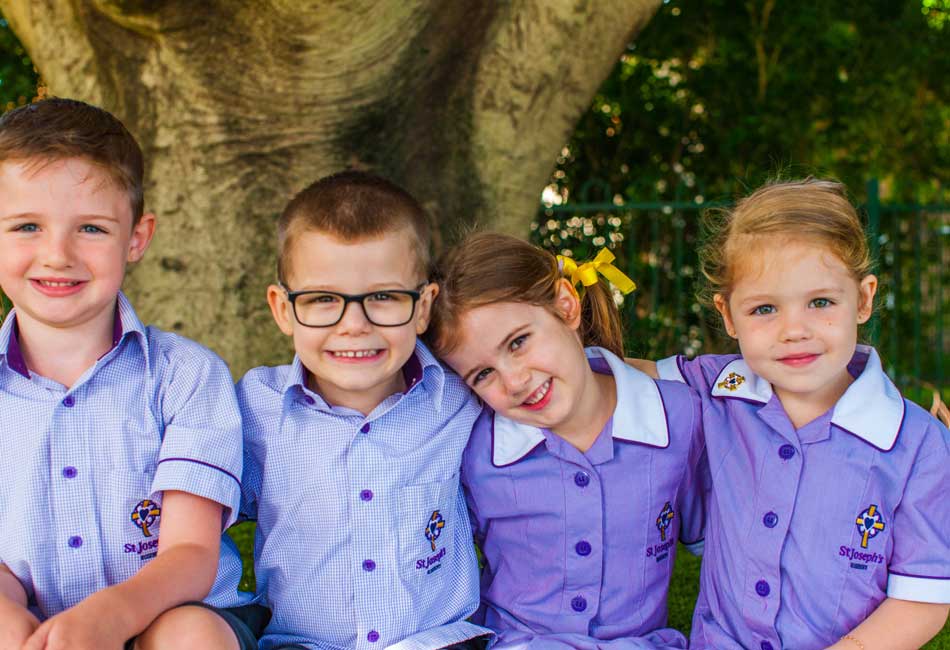The health benefits of sport for young people are so often expressed it’s easy to forget just how profound their impact.
Here are five reasons why sport is a first-rate way to encourage healthy bodies, minds, and skills for life.
Healthy bodies
Australia’s physical activity guidelines recommend children aged 5 to 17 do at least 60 minutes of moderate intensity physical activity each day.
These valuable minutes come with many health benefits according to Australia’s national wellbeing framework for learning communities including Sydney Catholic Schools.
Physically, sport provides an outlet for excess energy, encourages better quality sleep and improves motor skills such as balance and coordination.
“You’re more productive if you are physically healthy,” said Sydney Catholic Schools’ Manager: Pre-Post Sport, Damien Kerr.
“To get physically healthy you must participate in regular physical activity and then it is a self-perpetuating cycle.”
Healthy minds
The mental benefits are also impressive. Sport leads to improved blood flow to the brain and higher levels of serotonin and endorphins – neurotransmitters which help regulate and improve our emotional state.
This can boost mood, concentration and alertness – all of which influence learning and academic achievement.
“Regular inter-school sport is a way for students to get … all those benefits that come from playing in a team sport,” – Damien Kerr, Manager: Pre-Post Sport
Confidence
Prepare for your child’s confidence to soar when they clock some of their recommended physical activity through sport.
“You can see success through sport very quickly, whether that is the result at the end of a game, or you note your skills are getting better as an individual,” Mr Kerr said.
“This has a very positive impact on students’ confidence and sense of self-worth.”
Friendships and belonging
Taking part in sport, especially in a team setting, is a great way to form friendships. The regular shared experience of training sessions and games can help those friendships grow deeper over time.
“Relationships and camaraderie are forged when you have a common challenge,” Mr Kerr said. “I think that’s a big part of the social benefit of sport.”
Teamwork
Cooperation, communication and collaboration – team sports are filled with opportunities to build teamwork skills.
A survey of the nation’s sport participation showed all of the 33 per cent of young people aged 12 to 14 who participate in organised sport outside of school hours* enjoy being a valued member of a team.
School-based and inter-school sport takes this benefit to all young people studying at Sydney Catholic Schools.
The organisation’s 147-strong network of Catholic primary and secondary schools offers equitable access to sport opportunities through 15 weekly seasonal sports, 17 gala-day sports, multi-class pathways, and out of school hours programs.
“Regular inter-school sport is a way for students to get the physical activity, competition and all those benefits that come from playing in a team sport that they might not be able to afford outside of school,” Mr Kerr said.
Our commitment
At Sydney Catholic Schools, sport is for all ages and abilities. From beginner to elite, we offer an inclusive variety of sports for students to enjoy in both competitive and non-competitive settings.
An emphasis on excellence in all areas of education – from academic to vocational, sport and the arts – helps Sydney Catholic Schools nurture the potential of all students in their 147-strong network of primary and secondary schools.
Click here to find your nearest Catholic school.
*SportAus, 2019, Participation across ages, Australian Sports Commission, https://www.sportaus.gov.au.



